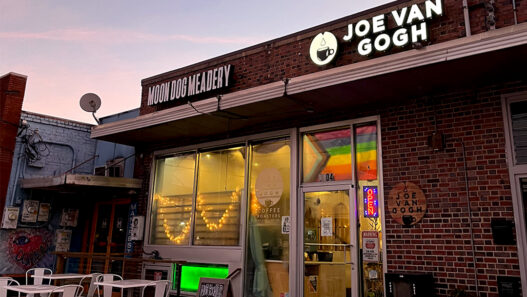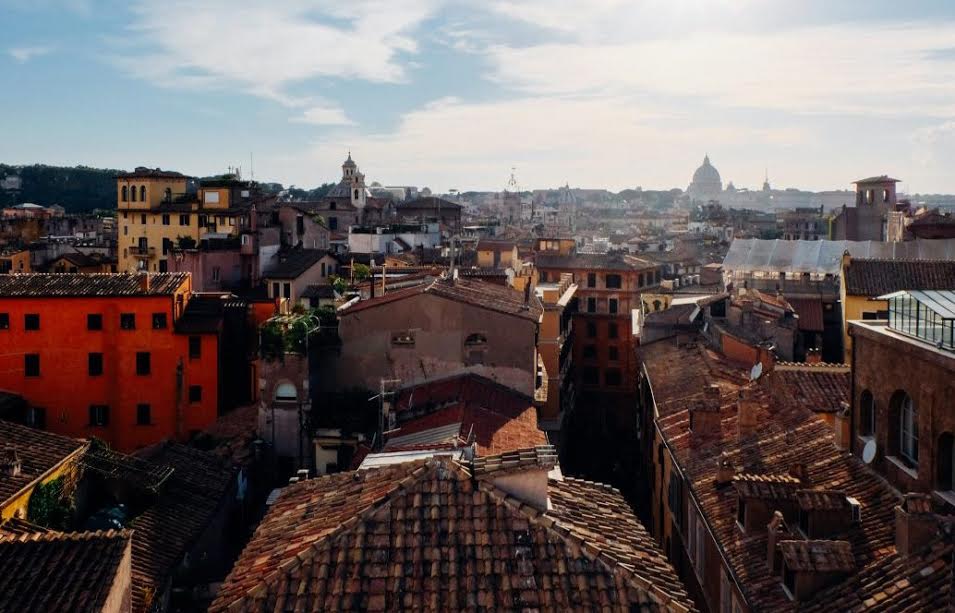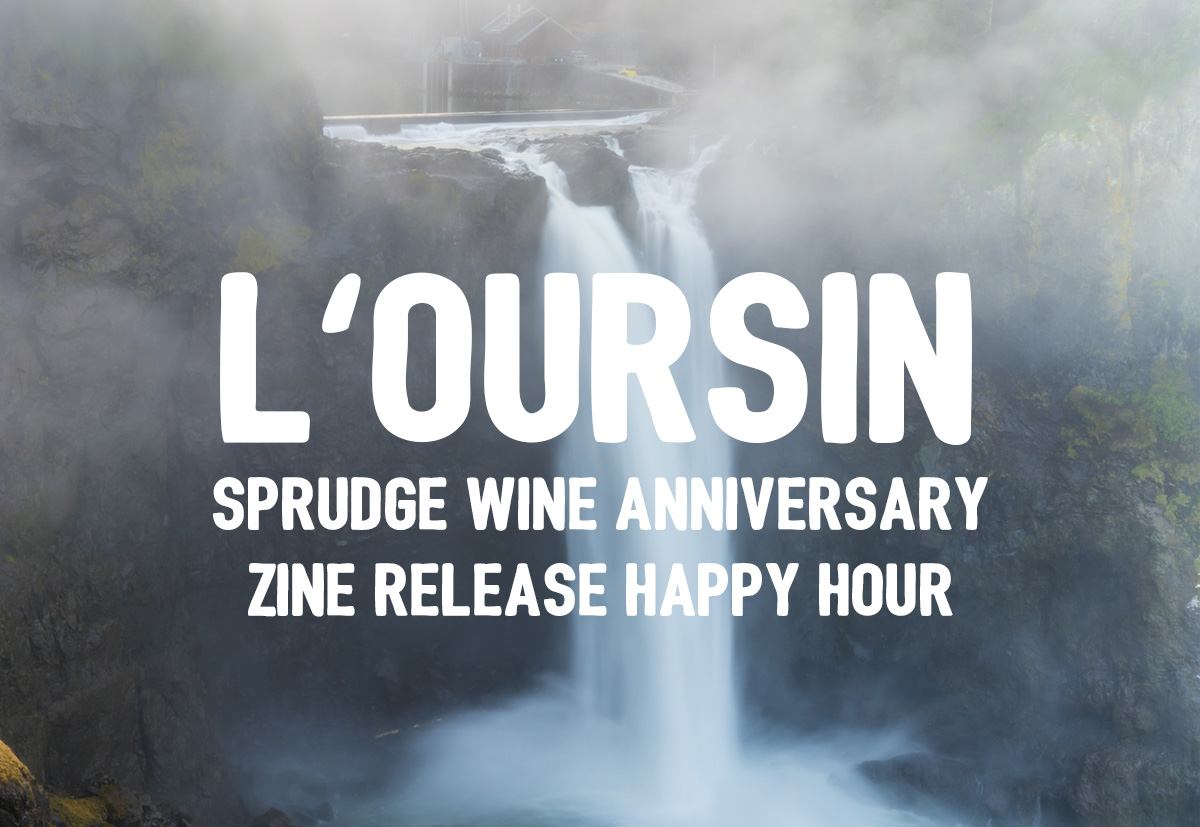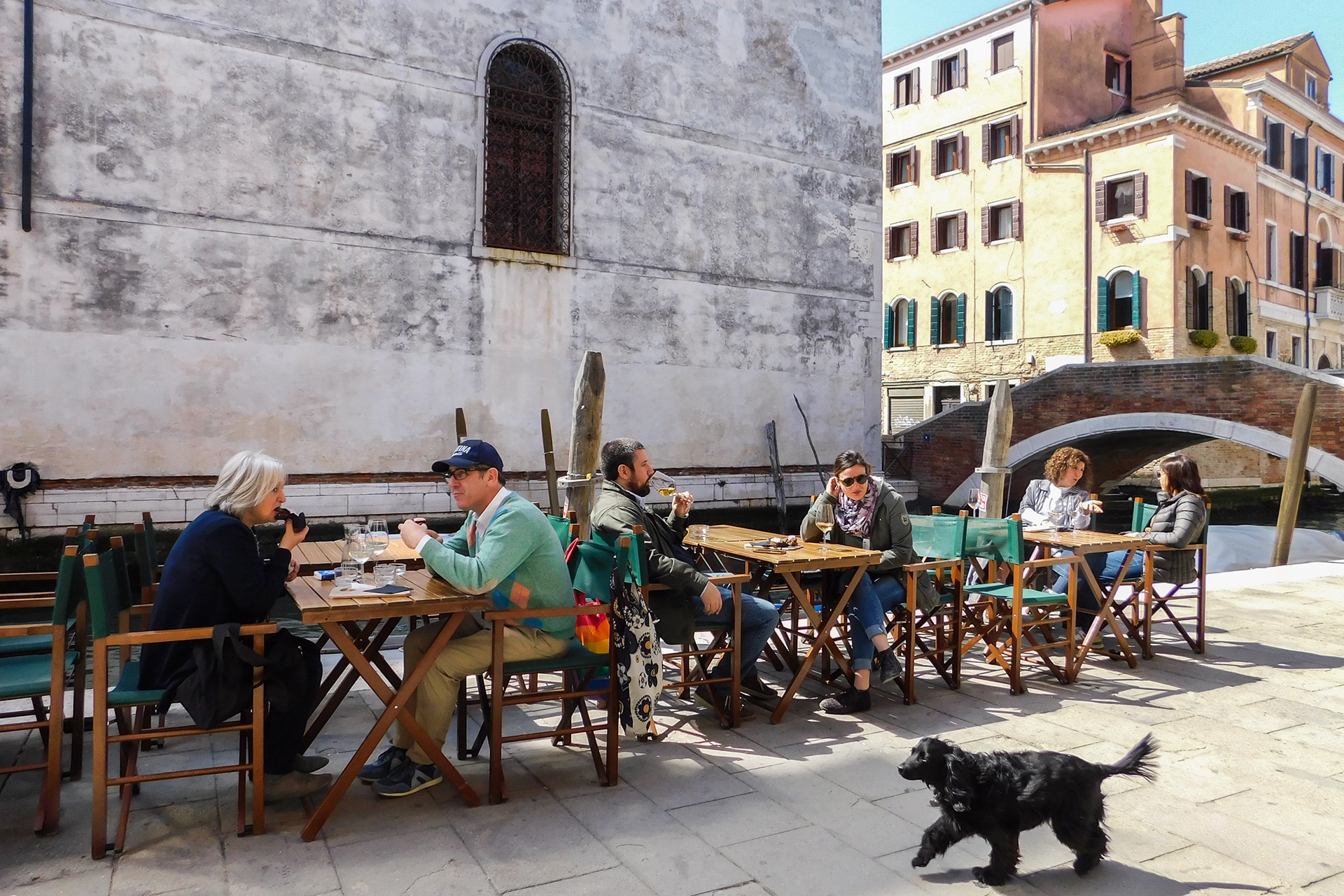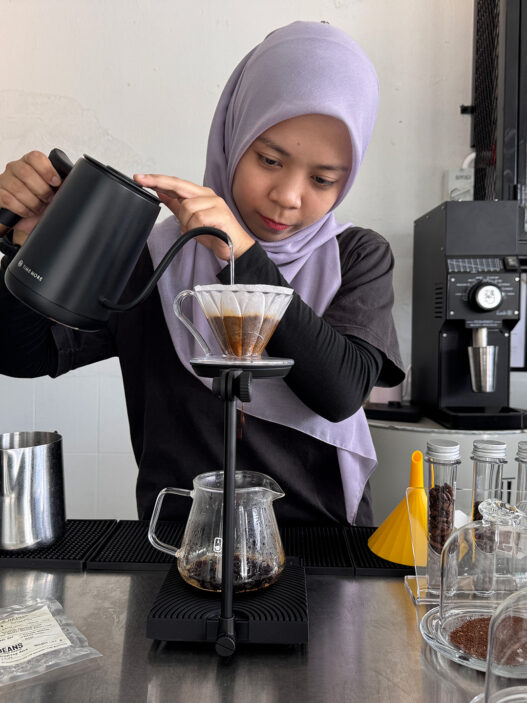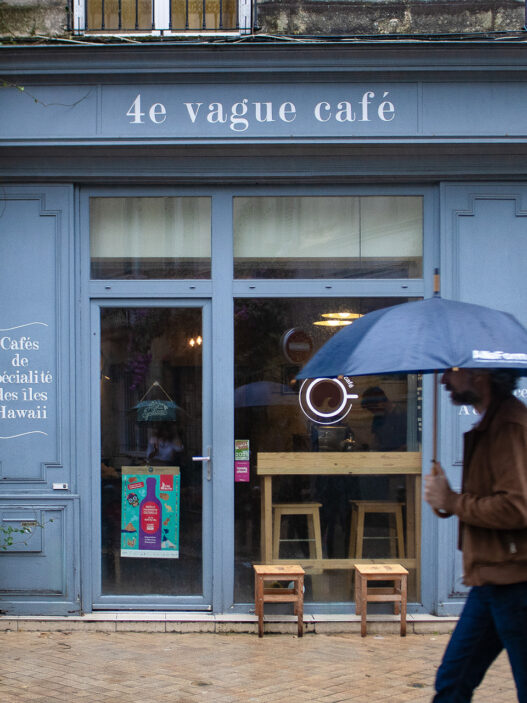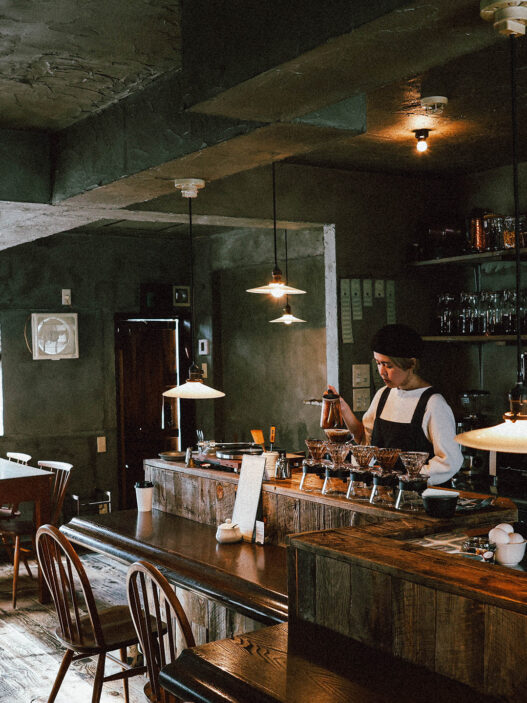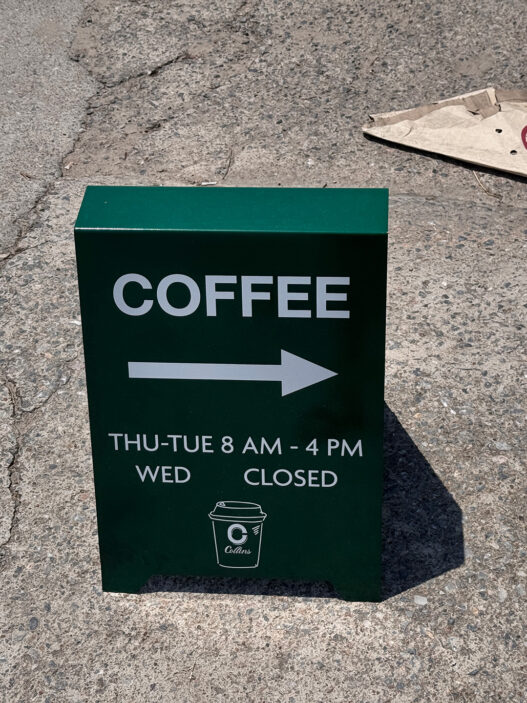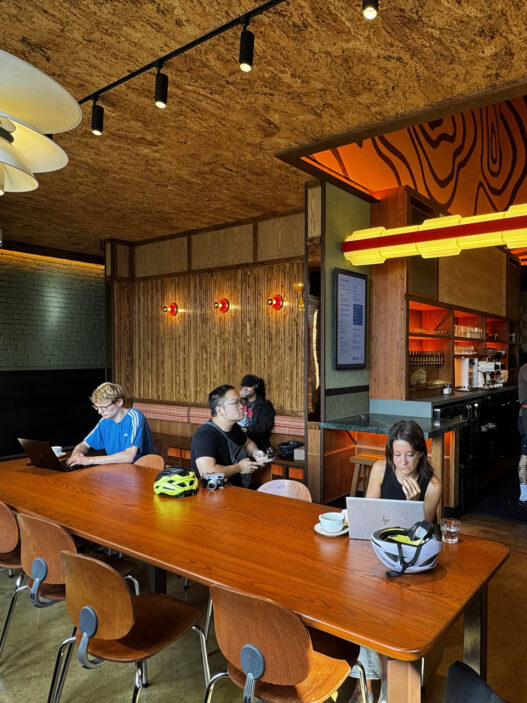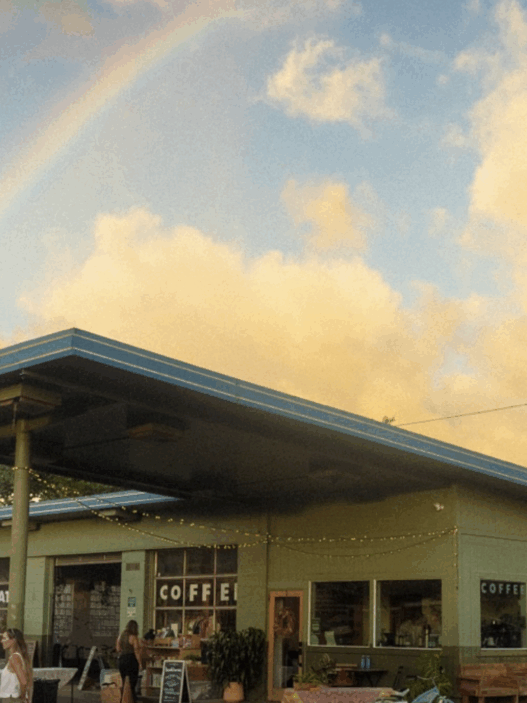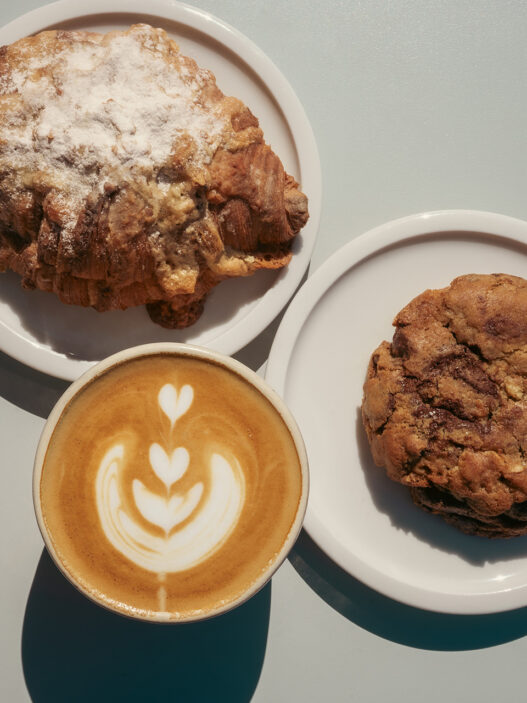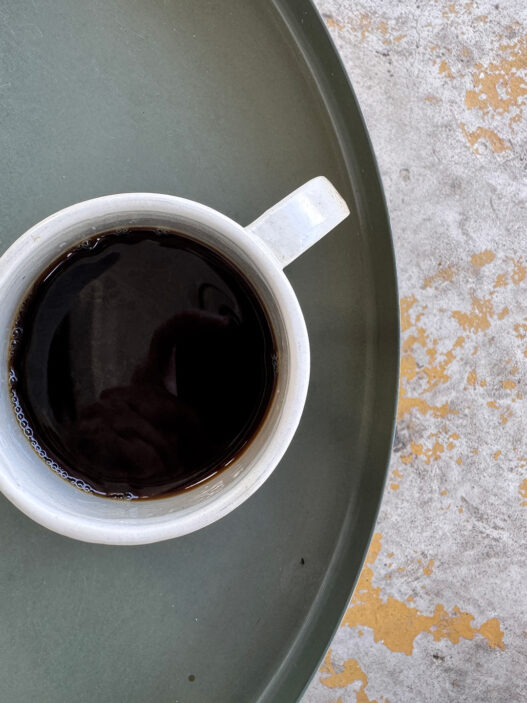Rome is a city that runs on an excess of caffeine. Brought up from childhood on drops of dark Robusta roasts, Romans tend to demand coffee that is bitter, scalding hot, and made in a hurry.
It is no wonder that coffee shops offering 100% Arabica and modern brewing methods have been hesitant to take on a stubborn, espresso-centric coffee culture.
The concept of Slow Food was born in Rome, and after a significant wait, specialty coffee is finally being ushered onto the Italian capital’s gastronomic scene. Likening good coffee to quality olive oil or specialty wines, new bars are finding a customer base that understands and craves something other than household brand industrial roasts. These new bars are offering unique coffees that can be hard to find outside of Italy, while simultaneously introducing Romans and visitors alike to specialty coffees from roasteries around Europe. While the drink-and-go culture of quick coffees and little chit chat still dominates, Rome’s modern cafes are also embracing the idea of ambiance—creating the small havens in the middle of a gorgeous, if chaotic, Italian city.
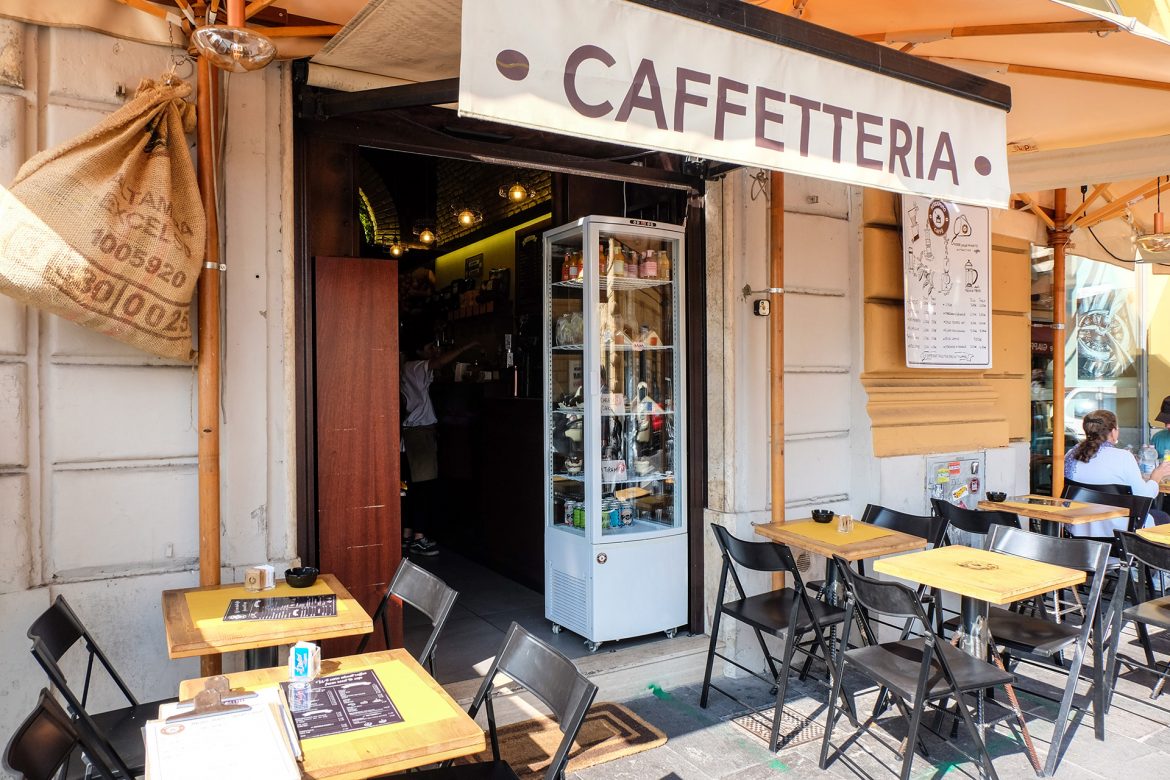
Pergamino Caffè
Located between St. Peter’s Square and the entrance to the Vatican Museums, Pergamino Caffè sits in one of the most heavily trafficked areas of Rome. Despite the endless stream of potential customers who are simply passing through and unlikely to return, the small shop has embraced a serious approach to specialty coffee. As in many Italian bars, prices vary depending on if the coffee is consumed at the bar or at a table. For this reason, as well as to ensure sufficient room for the gleaming La Marzocco Strada EP, the counter dominates the space.
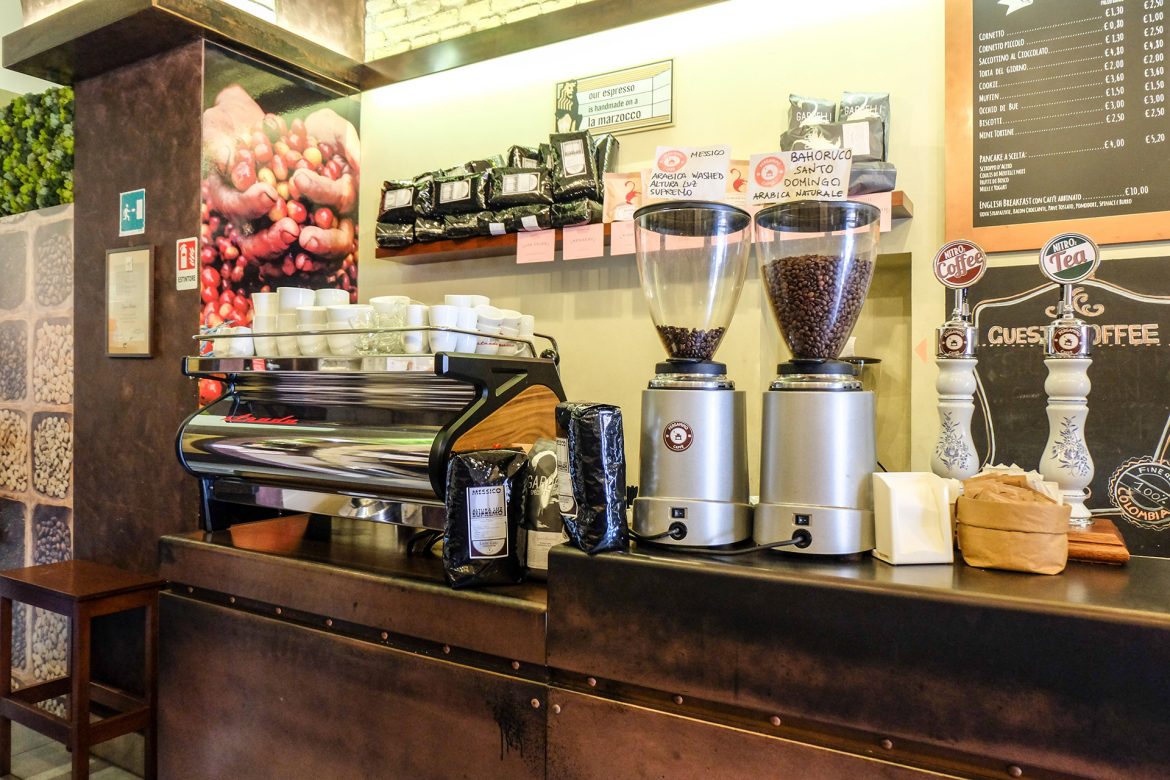
Below a printed manifesto on the cafe’s use of specialty coffee (and organic milk from a local producer), Ceado and Mahlkönig grinders, multiple V60s, a siphon, and an AeroPress stand at the ready. After a day of pounding ancient cobblestones, the prettiest sight in the modern cafe is the nitro tap. Pergamino is the first bar in Italy to offer nitro coffee, and the resulting crisp and sweet cold brew is the perfect antidote to the Roman sun.
Regardless of the preparation method, Pergamino offers coffee from a rotating selection of Italian roasteries, including Lady Cafè, Gardelli, and Rinaldi. A monthly guest roast from London, Berlin, or Amsterdam is also usually available.
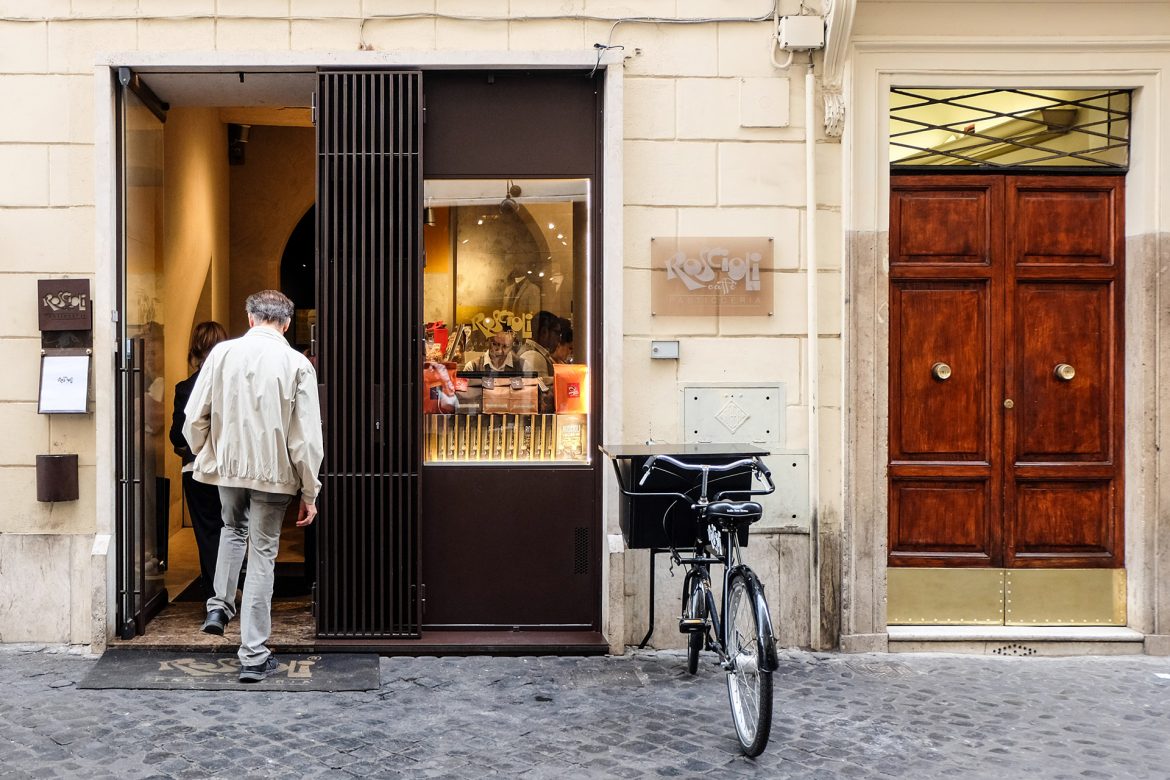
Roscioli Caffè Pasticceria
Roscioli is a name that is familiar in Rome food circles. The gourmet family owns a bakery, a modern pizzeria, a well-respected restaurant, and a wine school that all lie within a few minutes’ walk of each other in the historic center of the city. As a result, specialty coffee was a natural next frontier. The understated entrance of the cafe is easy to miss, but finding a spot along the bar can require patience and/or a well-placed assertive elbow nudge. The two-level counter runs the length of the narrow shop, allowing a ledge for coffee as well as a glassed-in view of Roscioli’s signature pastries. The entrance of the narrow bar is a difficult place to linger, but the shop also has a somewhat hidden and darkened back room with a communal table for 12. This is the best place to take a seat to enjoy specialty Italian coffee prepared via AeroPress or dripper. Roscioli serves coffee from Verona-based roastery Giamaica, but really draws crowds with their selection of traditional Roman sweets and savory panini to pair with espresso throughout the day.
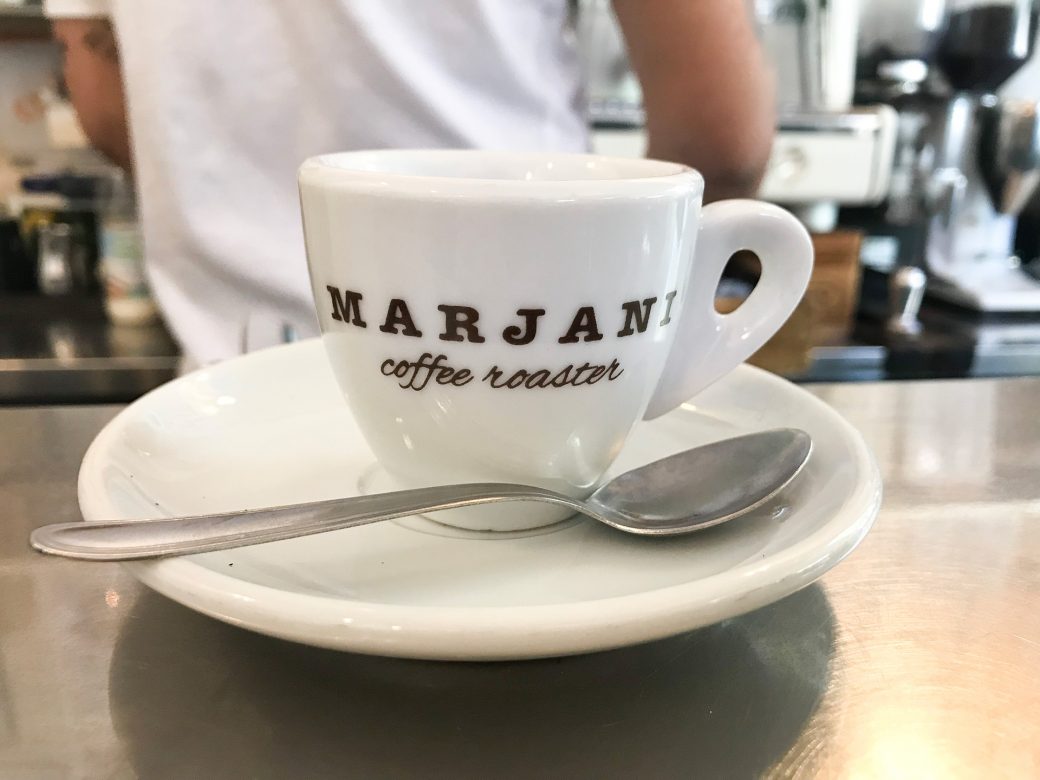
Marjani Coffee Roaster
Marjani is a true one-man coffee show in the businessy EUR district outside of central Rome. Sharing a storefront with a popular sandwich counter, Alessandro Pau singlehandedly manages a glossy Della Corte DC Evo 2, Chemex, v60, and AeroPress. Pau sources artisan roasts from around Italy, but what makes the trip to his coffee counter truly unique for Rome is that Marjani also acts as a local micro-roastery. While most guest roasts are 100% Arabica single-origin coffees from Ethiopia and Central America, one of Marjani’s signature “Roman” roasts is a blend of 70/30 Arabica and Robusta that appeals to local tastes. The deep and acidic espresso blend offers a complexity that is impossible to find in the city’s standard coffee bars. However, Pau also turns out 100% Arabica roasts in small batches depending on the beans he has sourced recently.
Marjani’s tiny shared space is short on seating and atmosphere, so the trip to EUR is best between peak rush hours when you have time to sidle up to the bar to sample and chat about the current coffee selection. Outdoor seating is also available along the street.
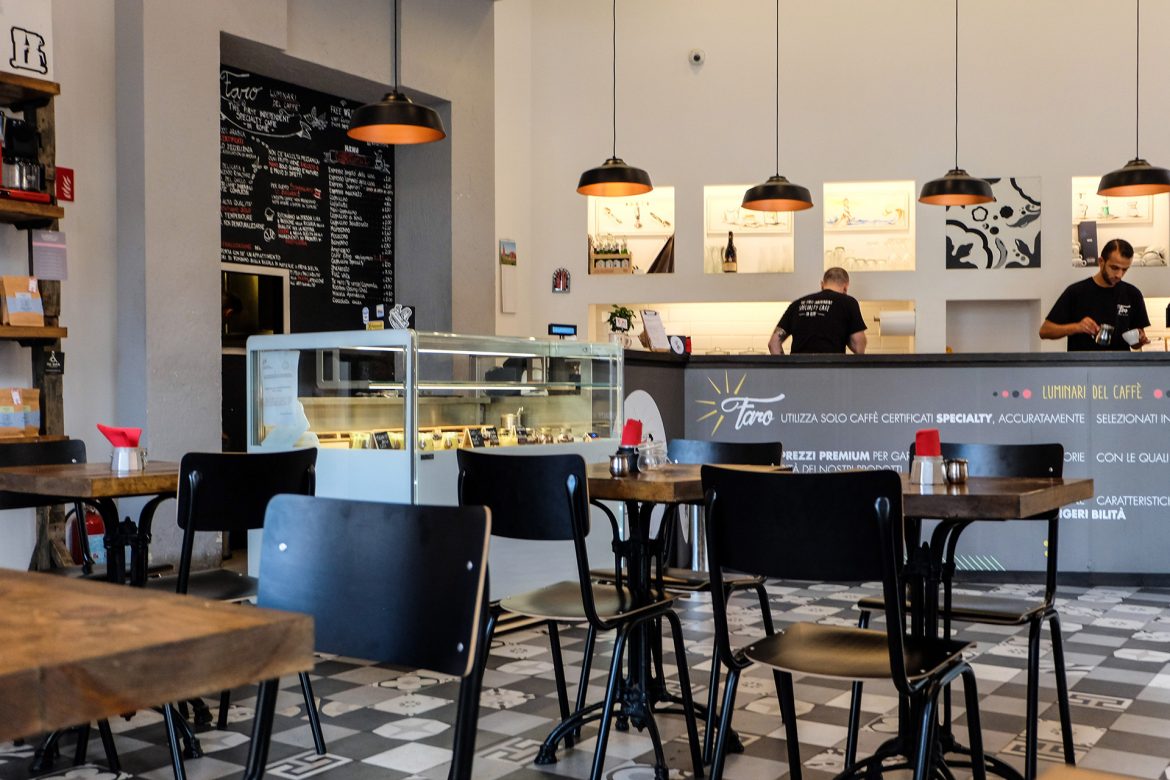
Faro – Luminari del Caffe
Having opened in December 2016, Faro – Luminari del Caffe is a welcome newcomer on the specialty coffee scene here. The laid-back coffee house is a short walk from the city’s main train station, but still falls a bit off the usual tourist map. Faro (which means “lighthouse” in Italian), tries to gently educate customers over every cup. The highly trained baristas encourage every guest to taste the coffee “senza zucchero”—without sugar. Co-founders Dario Fociani, Arturo Felicetta, and Dafne Spadavecchia always find the time to stop by and chat about the available roasts which change regularly. The house blend comes from Italy-based Gardelli, but Faro also offers a kind of tasting menu of single-origin coffees that comes complete with descriptions of the flavor notes. While the La Marzocco Strada EP and Mahlkönig EK43 setup is impressive, Faro really manages to distinguish itself on the Rome scene with ambiance. The spacious cafe is filled with natural light and plenty of seating. Inspired by his time in Melbourne, Fociani worked with his partners to create a sense of balance and an alternative to the slam-and-go Roman espresso culture that still reigns supreme in the city’s standard coffee shops.
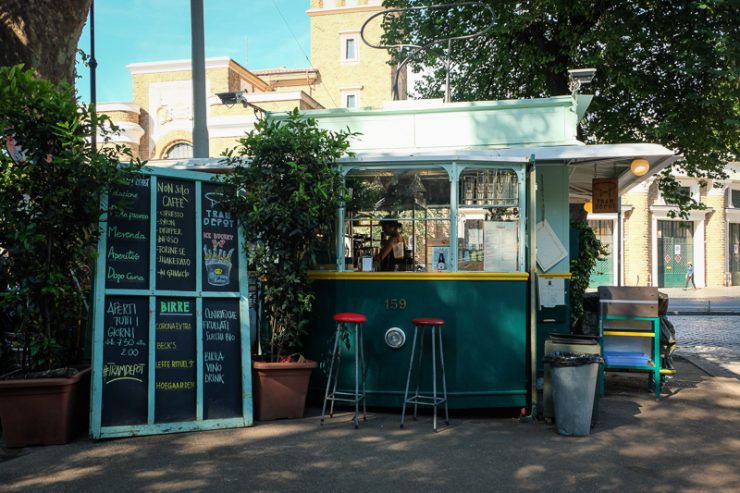
Tram Depot
A tiny kiosk on a busy intersection in Rome’s trendy Testaccio district, Tram Depot is one of the more unexpected specialty coffee stops in Rome. With a Wes Anderson palette of outdoor seats, the coffee cart is only open seasonally from April through October. The interior of the vintage tram car has been remodeled to turn out coffee throughout the day, and then transitions to cocktails through the wee hours of the morning. Tram Depot offers a rotating selection of coffee from Parma-based Lady Café, with most locals still opting to drink their coffee in a traditional espresso style. But keep in mind that the little cart also has filter and siphon options. You can read more Sprudge coverage on Tram Depot here.
Natalie Kennedy is a California-born, Italian-based travel writer and the publisher of An American In Rome. Read more Natalie Kennedy on Sprudge.








